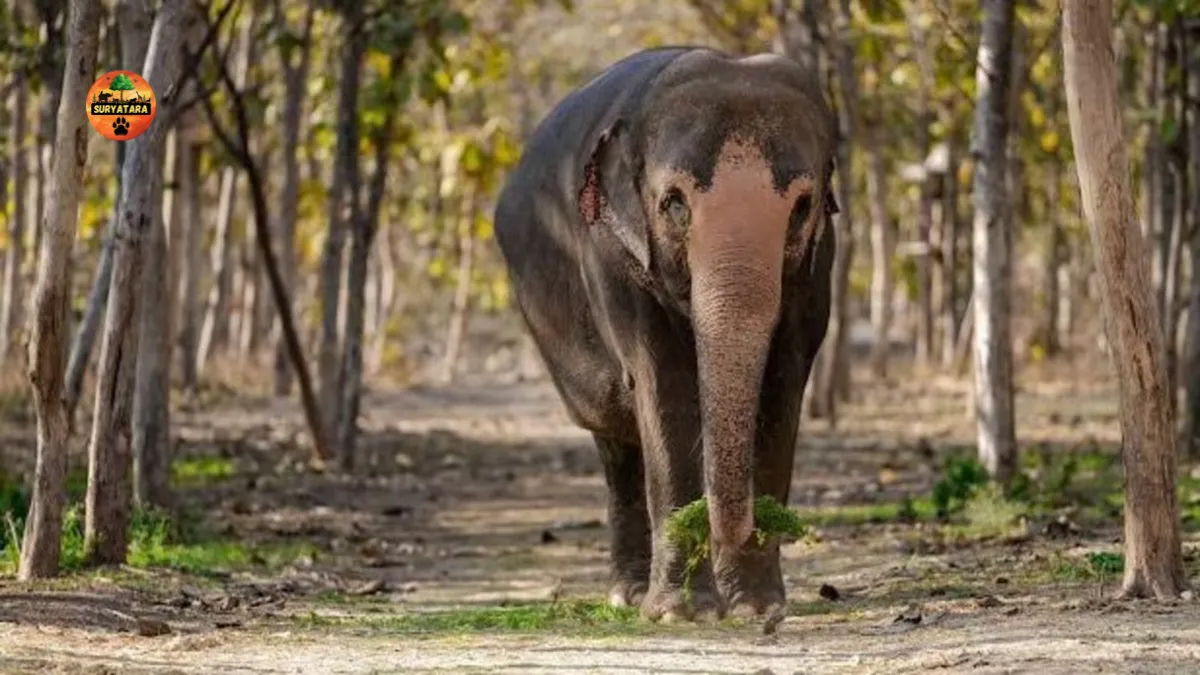The story of the Mahadevi elephant—also known as Madhuri—has been one of public debate, legal battles, and growing concern for animal welfare. Recently, this case has taken a hopeful turn as both PETA India and former Member of Parliament Raju Shetty have extended their support to Vantara’s proposal to create a modern elephant rehabilitation centre in Kolhapur.
This development comes after months of disagreement over whether Mahadevi should be moved from her current home at the Swastishree Jinsen Bhattaraka Pattacharya Mahaswami Sansthan Math in Kolhapur to the Vantara Centre in Gujarat, a state-of-the-art animal rescue facility run by Reliance Industries and the Reliance Foundation.
The Journey of the Mahadevi Elephant
The Mahadevi elephant is not just another captive elephant—she is a senior animal in poor health. Reports from animal welfare organisations describe her as suffering from grade-4 arthritis, painful foot rot, and exhibiting stereotypical behaviours such as constant head shaking. Experts say such repetitive movements are clear signs of severe psychological distress in elephants.
PETA India compared her situation to that of elderly humans, noting:
“Just as humans sometimes require hospitalisation, extensive care, and retirement, so do elephants.”
These health issues and behavioural signs show that Mahadevi needs more than just food and shelter—she needs specialised medical treatment, companionship from other elephants, and a peaceful environment to live out the rest of her days.
Legal Battles and Court Decisions
The controversy over Mahadevi’s future began when a decision was made to move her from Kolhapur to the Vantara Centre in Gujarat. While Vantara is widely recognised for its high-quality facilities and expert animal care, some people—including former MP Raju Shetty—opposed moving the elephant outside Maharashtra.
PETA India filed a petition, stating that the elephant’s rehabilitation was urgent and necessary for her survival. Acting on this petition, the Bombay High Court ordered her rehabilitation, and the Supreme Court of India later upheld the decision. This ruling effectively cleared the way for Mahadevi to be shifted to a facility that could provide the care she desperately needed.
A Change in Plans – A New Centre in Kolhapur
In a surprising and positive twist, Vantara announced that instead of moving Mahadevi to Gujarat, it would set up India’s first state-of-the-art satellite elephant rehabilitation centre in the Nandani area near Kolhapur.
This decision came in direct response to public sentiment and local leaders’ concerns. By establishing a facility close to Mahadevi’s current home, Vantara aims to provide her with world-class care without removing her from Maharashtra.
The proposed rehabilitation centre would be designed to meet the highest standards of elephant welfare, offering:
- Specialised veterinary care with round-the-clock medical staff
- Large open spaces for natural movement and exercise
- Social interaction with other elephants to reduce loneliness
- A calm, peaceful setting for retirement
PETA India’s Support for the Proposal
PETA India has officially welcomed Vantara’s plan. The organisation issued a press statement making it clear that their only concern is the elephant’s well-being, not the location of her care.
PETA said:
“If a similar facility is created here in Kolhapur, we will not oppose her being moved to Maharashtra. Our priority is that Mahadevi receives expert veterinary treatment, enjoys a calm and peaceful retirement, and has the company of other elephants.”
This shift in PETA’s stance reflects confidence in Vantara’s ability to deliver a facility that meets global standards for elephant care.
Raju Shetty’s Change of Heart
Former MP Raju Shetty, who initially opposed Mahadevi’s move out of Maharashtra, has now expressed his full support for the Kolhapur rehabilitation plan. He publicly thanked Anant Ambani for considering local sentiments and choosing to create the new facility in Mahadevi’s home state.
Drawing from his Jain community’s principle of “live and let live”, Shetty stated that while the earlier decision had caused some upset, he was now satisfied that the elephant would receive the care she needed close to home. He also expressed hope that the court would approve the new arrangement quickly.
Why This Case Matters
The Mahadevi elephant’s story is more than just a local news headline—it is a significant example of how animal welfare, public opinion, and corporate responsibility can work together.
Elephants are intelligent, emotional creatures with deep social bonds. When they are kept in captivity without proper care, the results are often heartbreaking. Mahadevi’s case has shown the importance of:
- Specialised veterinary care for aged and ailing animals
- Adequate space for physical exercise and mental stimulation
- Social interaction with other elephants for emotional well-being
- Listening to local communities when making relocation decisions
By proposing a rehabilitation centre in Kolhapur, Vantara is addressing not only the elephant’s health needs but also the emotional concerns of the local population.
Read this: Vantara Joins Maharashtra Government’s Efforts to Bring Back Madhuri Elephant to Kolhapur
The Road Ahead
Although the proposal has gained support from both PETA India and Raju Shetty, the plan still awaits court approval. Once the green light is given, work can begin on building the facility.
If completed as planned, the centre in Kolhapur could become a model for elephant rehabilitation across India. It would show that it is possible to combine modern infrastructure, expert medical care, and a deep respect for an animal’s emotional needs.
Read this: Vantara Zoo: A New Era of Animal Welfare and Wildlife Conservation in India
Conclusion
The Mahadevi elephant has endured years of physical pain and emotional distress, but the tide may finally be turning in her favour. With Vantara’s commitment to building a cutting-edge rehabilitation centre in Kolhapur, and the united support of both PETA India and Raju Shetty, there is hope for a better future.
This case stands as a reminder that true compassion for animals means listening, adapting, and putting their needs first—no matter how complex the situation may be. For Mahadevi, this could mean living her remaining years in peace, dignity, and the company of her own kind.













